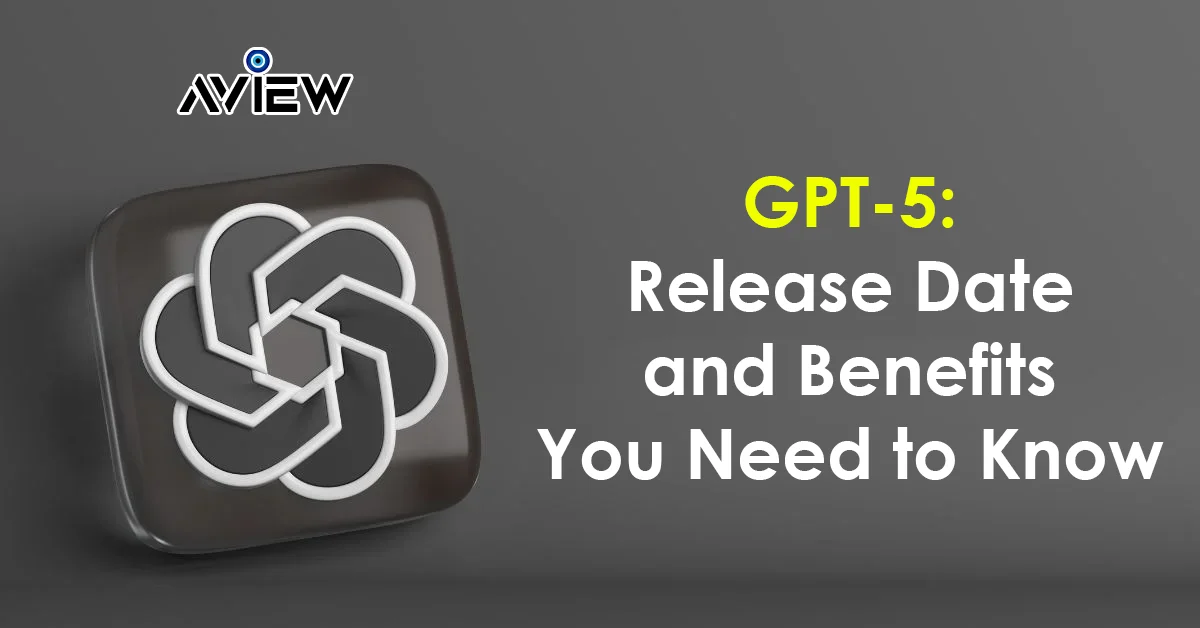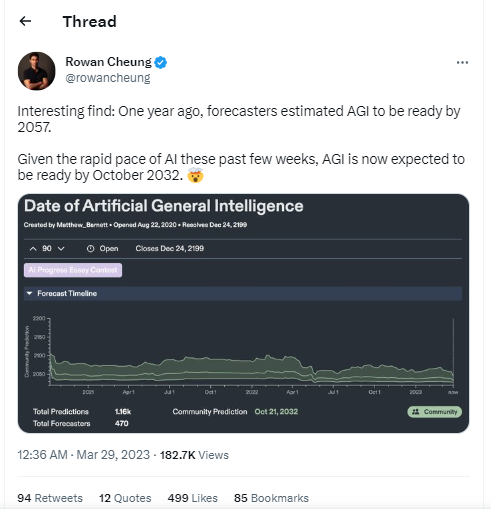GPT-5 Release Date: OpenAI is currently working on the next generation of its AI language models, which is expected to be called GPT-5. As the successor to ChatGPT, which has already achieved significant success, GPT-5 is eagerly anticipated. OpenAI is continuously advancing its technology to power its AI chatbot, and the development of GPT-5 is a major step towards achieving that goal.
The upcoming release of GPT-5 is expected to bring about significant improvements over its predecessor, GPT-4. While details about GPT-5 remain scarce, rumors and speculation are already swirling around the AI community regarding what we can expect from this new language model. In this article, we’ll take a closer look at some of the most exciting rumors surrounding GPT-5 so far.
GPT-5 Release Date
OpenAI has been making significant strides in the development of its language models in recent years. GPT-4 was released on 14th March 2023, just four months after the launch of ChatGPT and GPT-3.5. According to OpenAI, an intermediate version of the model, GPT-4.5, is set to be introduced in September or October of 2023, bridging the gap between GPT-4 and the highly anticipated GPT-5.

Rumors surrounding GPT-5 suggest that the model’s training will be completed by December 2023, with a potential launch date in 2024. While there is still much we don’t know about GPT-5, the progress made by OpenAI so far suggests that it could be a game-changer in the field of AI language models.
Availability
OpenAI’s availability plan for their new language models remains unclear. Currently, GPT-3.5 is available in ChatGPT, while GPT-4 is exclusively reserved for ChatGPT Plus. It’s likely that GPT-5 will first be made available on ChatGPT Plus, though it’s uncertain if it will eventually trickle down to the free version of ChatGPT.
It’s worth noting that other tools like Bing Chat have already incorporated the latest models. Bing Chat was reportedly launched secretly with GPT-4, even before the model was officially announced. It’s possible that a similar strategy will be employed with GPT-5, but we’ll have to wait and see how things unfold.
Can GPT-5 reach AGI?
Defining Artificial General Intelligence (AGI) is a complex topic as it pertains to a hypothetical concept. Nonetheless, initial reports suggest that GPT-5 might achieve a level of intelligence that could be deemed as AGI.
However, most experts believe that achieving AGI is still several years away. According to a Metaculus survey, true AGI is not projected to be achieved until October 2032. This forecast is earlier than previous estimates, but it’s still not as soon as 2024

Industry Pushback to GPT-5
A petition has been circulating that aims to put a stop to the development of GPT-5, which has already been in progress. Over a thousand public figures and tech leaders have signed the petition, including big names such as Elon Musk, Steve Wozniak, and Andrew Yang. The petition specifically targets GPT-5, with growing concerns over the technology among governments and the public.
FAQs on GPT-5 Release Date
When is GPT-5 expected to be released?
While there’s no official release date yet, rumors suggest that training for GPT-5 will be completed by December 2023, with a potential launch sometime in 2024.
Will GPT-5 achieve AGI?
Some early reports suggest that GPT-5 may achieve the general level of intelligence that could be considered AGI. However, most experts believe that true AGI is still many years away.
Will GPT-5 be available on ChatGPT?
It’s unclear how OpenAI will tier out availability to new models. GPT-3.5 is currently available in ChatGPT, while GPT-4 is reserved for ChatGPT Plus. It’s likely that GPT-5 will come to ChatGPT Plus first, but whether or not it will ever be available on the free ChatGPT tool remains to be seen.
Has there been any pushback against the development of GPT-5?
Yes, a petition signed by over a thousand public figures and tech leaders has been published, requesting a pause in development on anything beyond GPT-4. Significant people involved in the petition include Elon Musk, Steve Wozniak, and Andrew Yang. The concerns over the technology continue to grow among governments and the public at large.